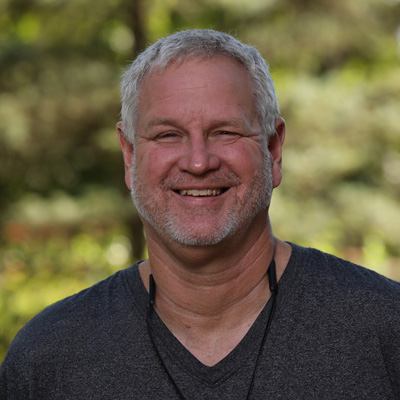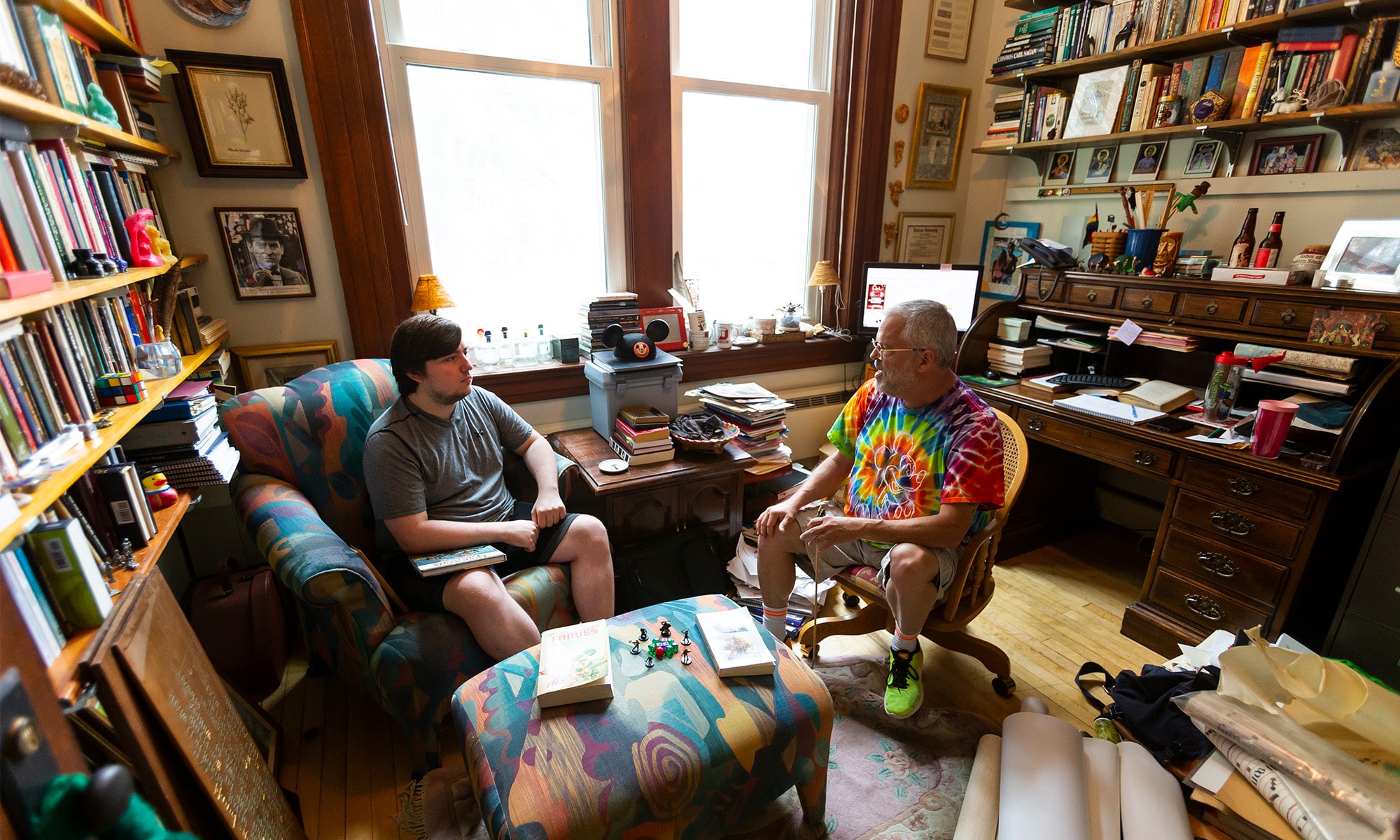Fred Porcheddu-Engel ’87 is vigilant in his pursuit of staying current. Not an easy task for a man who teaches medieval studies and literature.
His evolution takes several forms. From updating his pop culture references to using advanced digital technology to give his students a nuanced view of Richard III, Porcheddu-Engel has managed to keep up with the times.
“It’s new tools and technologies that frankly, as humanists, we have got to get on the ball with because otherwise, we’re still teaching literature basically the same way that people were in the 1890s,” Porcheddu-Engel says
The effervescent professor took a break from building a website dedicated to a 15th century manuscript, a gift to the university from an alum, to discuss his 30-year teaching career at Denison.
What attracted you to Denison as an undergraduate, and why did you return to teach here?
The feeling that I got at Denison when I came for my first visit was very strong, and while I couldn’t articulate it at the time, I knew it was the right place for me. I was very bookish and introverted, but the faculty ran me through my paces when they spotted my eagerness for learning. That’s when I knew I was going to become a teacher.
After I’d been in graduate school for a short time, I talked to my fellow grad students and I realized none of them had been as nurtured and challenged in their undergraduate years as I had been. That’s something special. I thought if there’s any way that I can continue in the Denison tradition of meaningful faculty interactions with students, I knew that’s what I wanted to do.
It’s my dream job. I don’t want to get too romantic or sentimental or mystical about it, but I sincerely want to pay it forward for the excellent education that I got here.
You have been teaching at Denison for 30 years. What keeps you energized and fresh in this environment?
There’s always a vitality with a new class of students. They bring energy.
The thing that causes me to be constantly refreshed, however, is the ethos of this place. And for the past several years, it’s been the effect of (Denison President) Adam Weinberg, of whom I have such a high opinion.
The man, since he stepped foot on this campus, has made informed and humane and thoughtful decisions about the direction of the college, about the way that we talk about ourselves, and what our true values are. I’ve always been proud to work here, but Adam Weinberg and the upper administration of the college make me roll forward on the balls of my feet.
Porcheddu-Engel cherished the attention he received from Denison professors as a student. “I thought if there’s any way that I can continue in the Denison tradition of meaningful faculty interactions with students, I knew that’s what I wanted to do.”
How did you develop an interest in medieval studies and literature?
I’ve always been interested in older things. I don’t know why. My parents were both older. They were in their 50s when I was a teenager. Our house was full of early 20th century stuff. We had old records, and I grew up listening to big band music and swing music. But there’s a lot of paths around here that influenced me.
As a student, I responded to a couple of English faculty members who were here at Denison. Their delight, their command of the material, their thoughtfulness about it was wonderful. They weren’t trying to impose on their students a reading of anything particular.
They were saying, ‘Here’s one way of looking at it. What do you think?’ Those are open-ended sorts of things. And I thought, ‘That’s it.’ It’s the method that’s the point here — it’s not the actual material itself.
So, I need to be attracted to whatever material I’m attracted to — and in this case it’s older, obscure stuff — but the method of generous sharing and delight in talking about these old things will always be there whatever specialization I choose.
Has humor always been part of your teaching?
I don’t put much stock into intellectual dignity. It kind of ends up being an esoteric distance that faculty keep from their students. I think it’s entirely counterproductive.
I may know a lot more about this time period, about this subject, than any of my students, but that’s irrelevant. What I need to do is to try to develop in them an interest and an understanding that none of these things have been decided yet. I’m not transferring information one way. I want to hear how they see this piece of writing. That’s how you keep things from being dull.
But humor is absolutely necessary because it grounds us all. So if you can be self-deprecating, if you can be silly in front of your students, you’re at least halfway to having won them over.








